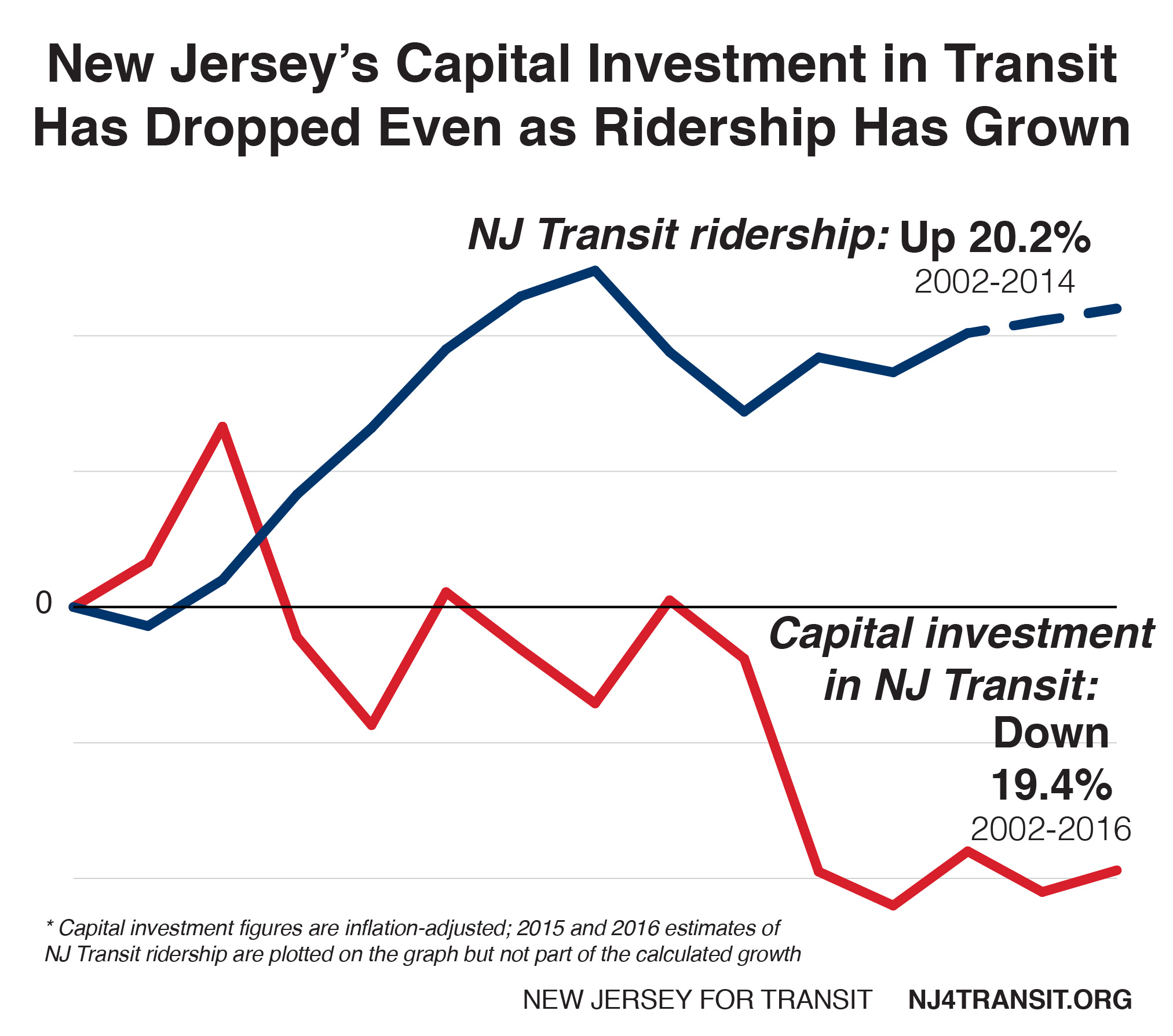Public transit is more than just getting from Point A to Point B – it’s the future engine of success for our state, with the potential to create a stronger economy, cleaner environment and more equitable transportation options for low- and moderate-income residents. Yet despite transit’s clear benefit to New Jersey, the state has systematically shirked its responsibility to invest the dollars necessary to create a world-class public transit system that is reliable and affordable.
That’s the opening paragraph in a new report released yesterday by the New Jersey For Transit coalition, of which NJPP is a founding member and co-chair. The report, “Stuck at the Station,” quantifies what my fellow transit riders intuitively know: That declining state investment has led to a “product” that is of a higher cost and lower quality than it should be.
Here are the report’s key findings:
• Since 2002, New Jersey’s annual capital investment in maintaining, repairing and expanding its core public transit assets has dropped by an inflation-adjusted 19 percent, even as ridership has grown by 20 percent. (The drop is even more severe when measured from the high funding point of 2004; the decline in capital funding is 29 percent from 2004 to 2016.)
• This drop in capital funding for NJ Transit has been made worse by meager state support of NJ Transit’s operating costs, which has led the agency to continually use capital funds to literally keep trains and buses running.
• The lack of investment has stalled all of the state’s major transit expansion projects, and has led to stagnant funding for maintenance of NJ Transit’s existing bus and train assets.
• New Jersey’s declining direct state support for NJ Transit’s day-to-day operating costs has also led the agency to increasingly rely on fare hikes and fund raids from other parts of the state budget to balance its annual budgets.
• NJ Transit’s train system suffers from more breakdowns and equipment failures than most other transit agencies in the nation and our regional peers.
At a press conference releasing the report yesterday, members of the coalition were joined by Assembly Speaker Prieto and Assembly Deputy Speaker Wisniewski, who urged their colleagues and the governor to come together to replenish the state’s near-bankrupt Transportation Trust Fund and prioritize funding for transit. A full video of the press conference is below:


